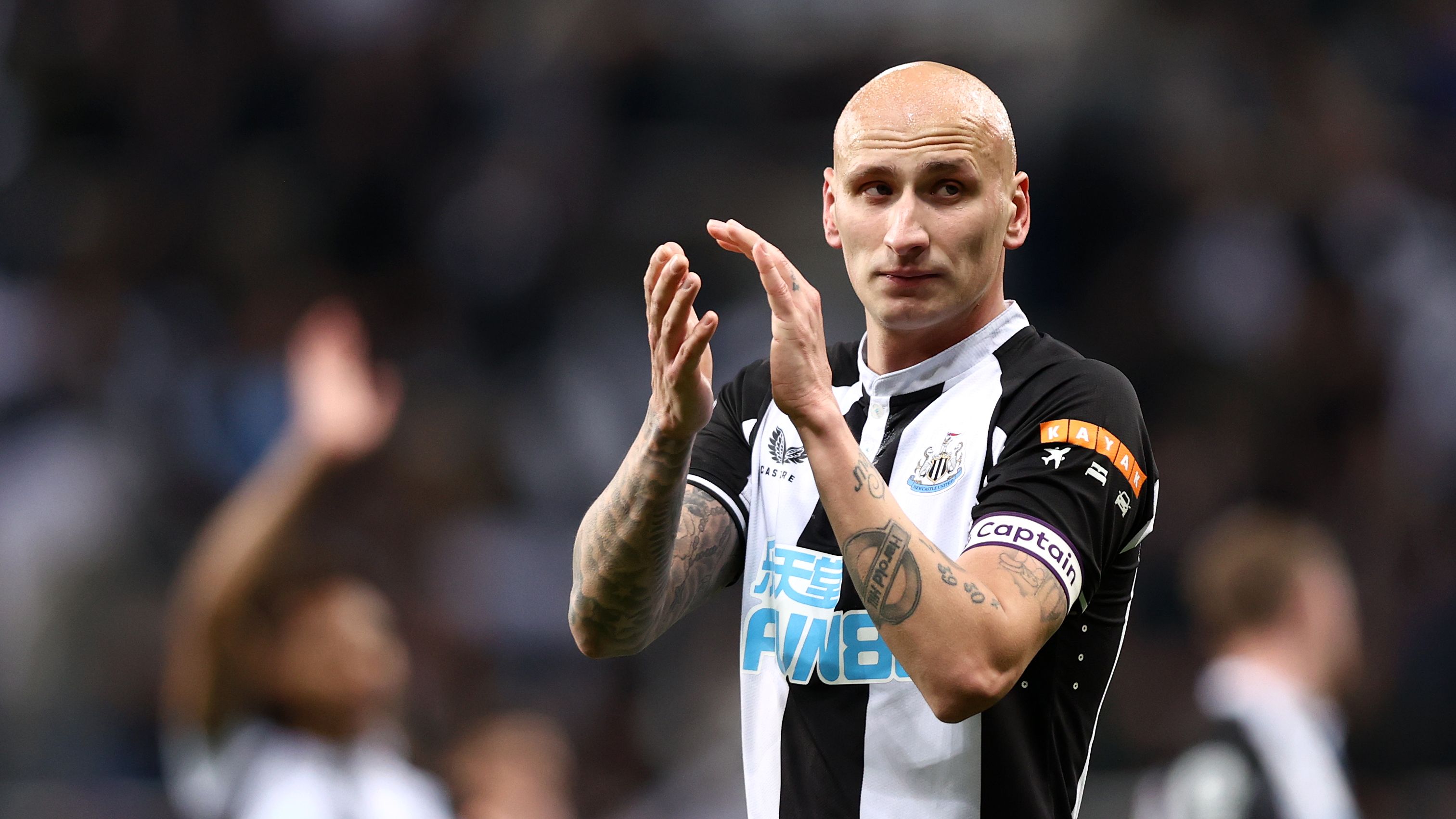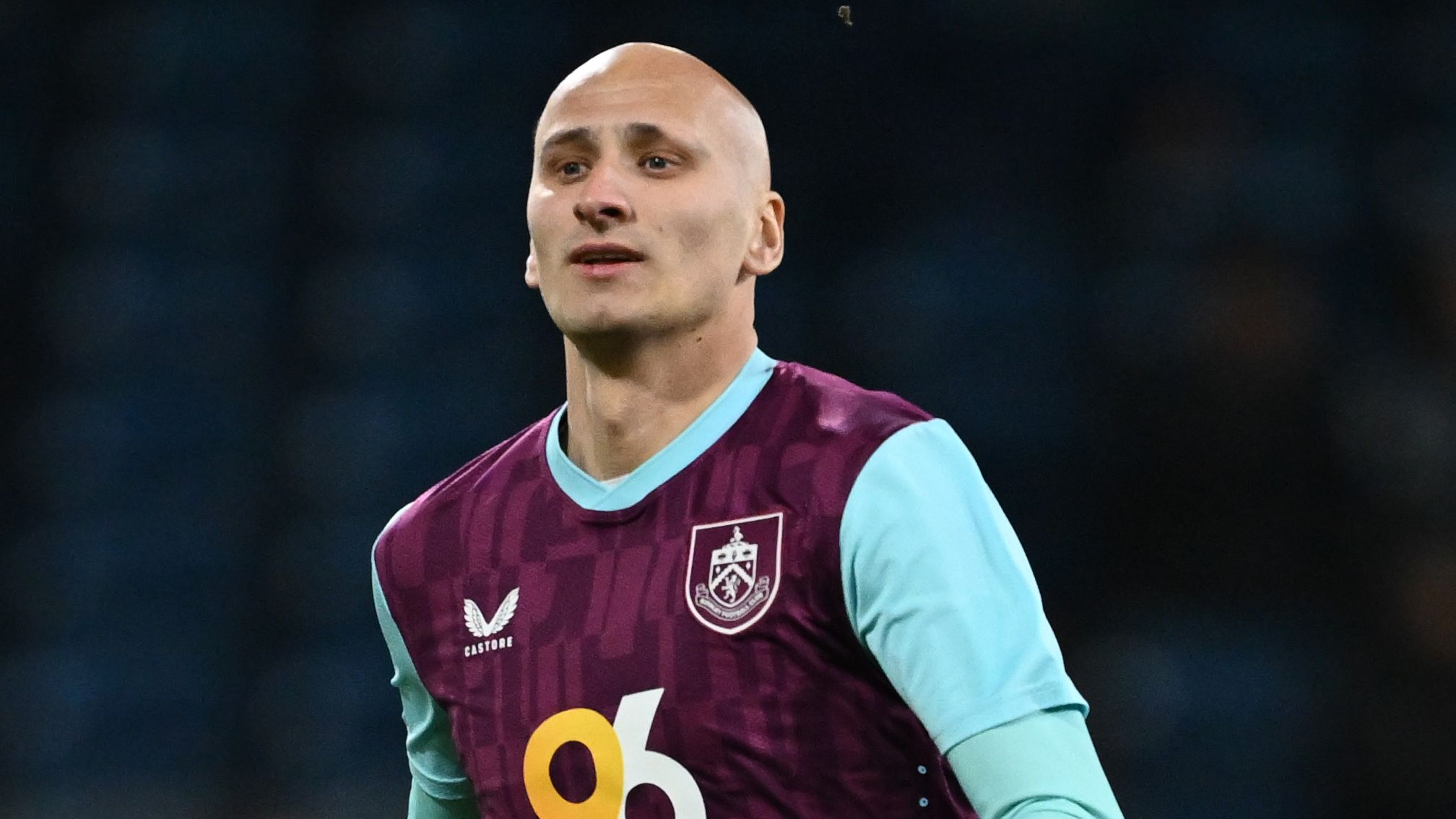


From England Hero to UAE Hurdle: Jonjo Shelvey’s Debut Dilemma
In a captivating twist for former England star Jonjo Shelvey, his initial foray with a new team brought both triumph and tribulation. The Arabian Falcons secured a narrow 1-0 win against Al Fath, marking Shelvey’s debut after leaving Burnley in June at age 33. This move to the UAE offered him a golden chance to make an immediate impact when his squad earned a penalty kick, yet the English midfielder unfortunately directed the ball off target, missing a prime opportunity to kick off his adventure on a stellar note.
Jonjo Shelvey’s Club Journey: Peaks and Transitions
Throughout his professional tenure, Jonjo Shelvey proved to be a steady force in midfield while playing for Liverpool and Swansea. His professional path hit its zenith upon transferring to Newcastle in 2016, where he donned the jersey for eight seasons and featured in 200 matches. After departing Newcastle in January 2023, he swiftly moved across four teams in two nations-namely Nottingham Forest and Burnley in England, plus Rizespor and Eyupspor in Turkey-yet he only found consistent playing time at Rizespor, facing difficulties in securing a regular spot elsewhere.
Early Career Highlights and Challenges
Originating from Romford, Shelvey‘s evolution in the sport included notable stints that shaped his reputation, transitioning from promising beginnings to high-stakes environments. This pattern of adaptation underscores the ups and downs typical in a footballer’s career, where loyalty to one club can pivot to frequent shifts in search of the right fit.
The Brief Spotlight of Jonjo Shelvey’s International Career
Jonjo Shelvey‘s time with the national team was relatively short-lived and marked by sporadic appearances. He first stepped onto the international stage on October 12, 2012, under manager Roy Hodgson, facing San Marino in a World Cup qualifying match. Across his six international outings, he completed the full 90 minutes just twice: once in 2015 during European Championship qualifiers against San Marino-the very opponents from his debut-and again a month later versus Lithuania in the same tournament, where he also provided an assist. His final involvement came that same year in a friendly against France, limited to an 11-minute substitute role.
Key Moments in National Play
These select games highlight how Shelvey‘s international exposure, though limited, featured moments of contribution amid brief participations, illustrating the competitive nature of earning a spot on the squad.
Current Standing and Future Aspirations for the Midfielder
Presently, Jonjo Shelvey‘s Arabian Falcons hold the fourth position in their league standings. Moving forward, the English midfielder is poised to demonstrate his skills and redeem himself in forthcoming matches, aiming to build on his experience and leave a lasting mark in this new chapter of his career.
Who is Jonjo Shelvey?
Jonjo Shelvey, a name that rings familiar to many football enthusiasts, is a former England international midfielder whose career has seen its share of highs and lows. Born in 1992 in Liverpool, Shelvey burst onto the scene as a promising talent at Charlton Athletic before making a high-profile move to Liverpool in 2010. Over the years, he became known for his precise passing, long-range shots, and leadership on the pitch, earning him 12 caps for the England national team between 2012 and 2017.
Shelvey’s club career took him to Swansea City and later Newcastle United, where he was a key player in the Premier League for nearly a decade. However, after falling out of favor at Newcastle, he sought new opportunities abroad, eventually signing with an unnamed UAE third-tier club in a surprising career pivot. This move highlights the unpredictable nature of professional football, where even seasoned players like Shelvey can find themselves in lesser-known leagues.
Shelvey’s Journey to the UAE Third-Tier League
The transition to a UAE third-tier club represents a significant shift for Jonjo Shelvey, who was once a mainstay in England’s top flight. Third-tier leagues in the UAE, often overlooked in global football discussions, provide a platform for emerging talents and seasoned pros alike to continue their careers. Shelvey’s decision to join such a league could stem from various factors, including limited options in Europe or a desire for a fresh challenge in a new cultural setting.
Playing in these leagues offers players the chance to adapt to different playing styles, such as the fast-paced, tactical approaches common in Middle Eastern football. For Shelvey, this move might have been about maintaining his passion for the game while exploring opportunities outside the Premier League spotlight. Keywords like “Jonjo Shelvey debut” and “UAE third-tier club” have been buzzing in football circles, as fans speculate on how this change will affect his performance and legacy.
The Debut Match: What Went Down
On his debut for the UAE third-tier club, Jonjo Shelvey stepped onto the pitch with high expectations, but the match quickly turned into a memorable moment for the wrong reasons. Facing a mid-table opponent in a league fixture, Shelvey was brought on as a substitute in the second half, showcasing his experience in midfield. However, the game’s turning point came in the dying minutes when his team was awarded a penalty kick – a golden opportunity to secure a draw or victory.
Unfortunately, Shelvey’s penalty attempt was saved by the opposition goalkeeper, leading to a heartbreaking loss for his new side. This incident, often searched as “Jonjo Shelvey misses penalty,” underscores the pressure that comes with spot-kicks, even for players with extensive experience. Eyewitness accounts from fans at the stadium described the atmosphere as tense, with Shelvey appearing composed before the miss, only for the ball to sail wide.
In football, such moments can define a player’s debut, and for Shelvey, this was a stark reminder that no level of the game is immune to high-stakes errors. The event has sparked online discussions, with phrases like “England international Jonjo Shelvey” trending as people debate whether this signals a decline or just an off day.
Reactions and Impact on Shelvey’s Career
The football community reacted swiftly to Jonjo Shelvey’s missed penalty, with social media platforms filled with a mix of sympathy and analysis. Former teammates and pundits pointed out that even stars like Alan Shearer and Frank Lampard have had their share of penalty woes, emphasizing that this doesn’t diminish Shelvey’s overall contributions to the sport. In the UAE, local media covered the story extensively, viewing it as a learning curve for the league’s growing profile.
This incident could have a lasting impact on Shelvey’s career trajectory, potentially affecting his confidence or motivating a comeback. For players in third-tier leagues, such experiences often lead to greater resilience, as these competitions demand consistent performance without the glamour of top-tier football.
Practical Tips for Mastering Penalty Kicks
While Jonjo Shelvey’s miss highlights the challenges of penalty-taking, it’s a great opportunity to share some practical advice for aspiring footballers. Taking penalties might seem straightforward, but it requires mental fortitude and technique. Here are a few tips to improve your skills:
- Focus on Mental Preparation: Before stepping up, visualize the ball hitting the net. Shelvey might benefit from this, as nerves can play a big role.
- Practice Under Pressure: Simulate game scenarios during training, like having teammates shout to mimic crowd noise.
- Perfect Your Technique: Aim for the corners of the goal with a controlled run-up, and don’t forget to follow through for accuracy.
- Analyze Goalkeepers: Study their tendencies, as Shelvey could have scouted his opponent’s dives more effectively.
These tips aren’t just for pros; they’re useful for anyone playing in local leagues, helping to build the confidence that Shelvey has shown throughout his career.
Case Studies of Similar Player Experiences
Looking at other footballers who’ve faced similar setbacks provides valuable insights. For instance, England legend David Beckham missed a crucial penalty in the 2004 European Championships, yet he bounced back to become an icon. Another case is Steven Gerrard, who missed a penalty in the 2015 EFL Cup final but continued to lead Liverpool with distinction.
In Shelvey’s case, this debut mishap mirrors the experience of players like Mesut Ozil, who struggled in lower-profile leagues after leaving Arsenal. These real-world examples show that a single miss doesn’t define a career, and with determination, players can turn things around. Shelvey might draw from these stories as he adapts to his new environment in the UAE third-tier league.
This event also ties into first-hand experiences shared by coaches and players in emerging leagues. Many report that the intensity of third-tier football builds character, much like how Shelvey’s early days at Charlton shaped his resilience. By learning from these cases, readers can appreciate the human side of the sport and how setbacks often lead to comebacks.









